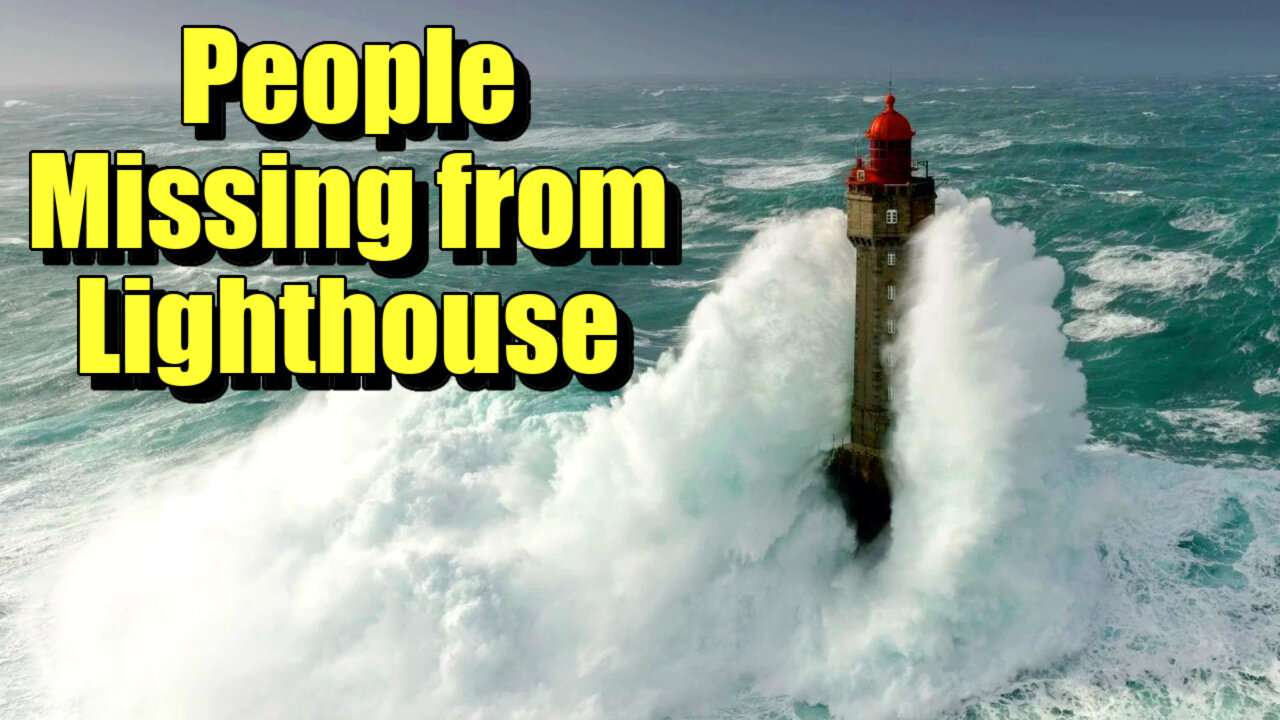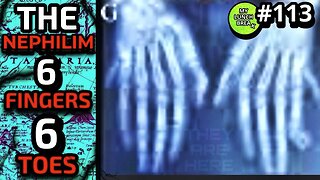Premium Only Content

Three Disappear from Eilean Mor Island - Mystery of the Flannan Isles Lighthouse Keepers
Until now, there was no explanation for the disappearance of three lighthouse keepers from Eilean Mor island, in the bitterly cold Christmas season of the year 1900.
Before the automation of the 1970's a lighthouse required at least two keepers, one to operate the beacon while the other slept. If only two were stationed, because they had to work and live in close quarters, there was always the danger that one man would murder the other. Better to assign three men. What could possibly go wrong?
SEND BILL A COFFEE
🎃 SEND BILL A COFFEE http://www.paypal.me/CoffeeFundForBill
🎃 VENMO @NightTerrorsWithBill
🎃 CASH APP $NightTerrorsWithBill
🎃 PATREON https://www.patreon.com/NightTerrorsWithBillMadon
The Flannan islands are seven rocky spurs that suffer harsh North Atlantic weather. Stony outcrops endanger shipping vessels which stray but slightly "off course", in the absence of a working lighthouse. Thus one was built on largest of the islands, Eilean Mor, which is only a few hundred yards across.
The standard crew of three lighthouse keepers was stranded on Eilean Mor because the isle had no boat of its own. There were no beaches, only steep faces of cliff
on all sides. Supplies or visitors were fitted with a harness and hoisted ashore by winch and crane.
The Northern Lighthouse Board of Scotland, or the "NLB", mandated that men on duty be rotated out one at a time. On the day after Christmas the relief vessel Hesperus arrived. But there was no one on the landing to operate the crane. The Hesperus fired off a rocket to get the attention of the station. No one came in response to the flare. The ship lowered a boat and the relief man alone was able to make it ashore.
At the lighthouse keeper's cottage he found the door closed, but it was unlocked. When he opened it, three birds with dark feathers flew out of the door, of a species he could not identify. Inside the beds were neatly made. The station was tidy. The dishes were clean - their last meal had been at lunchtime. No sign of distress. The captain of the Hesperus dispatched a wireless telegram to the NLB that all three men had vanished into the night, without a trace.
The Superintendent of the NLB investigated the island. Three sets of outdoor gear had been issued, waterproof coats called "oilskins". Only two were missing. The third oilskin was still on a hook in the cottage. The Superintendent copied the most recent entries from the log book. After he left the island the log book disappeared.
The log reported unusually calm weather. Computer analysis of historical area records confirmed calm weather leading up to the day of the last entry, and for several days thereafter. The log also reported tensions between the men. Thomas Marshall was the gentle giant but he became unusually quiet and withdrawn. James Ducat was the senior lighthouse keeper, with decades of experience. He would never allow the cardinal rule to be broken. One man was to stay inside the cottage at all times. The third man, Donald MacArthur, was a drinker who often got into fights at the pub.
Only conjecture remains to explain the disappearance. Were they swept away by waves from a seaquake, or captured by a ghost ship, or devoured by a sea monster? Perhaps they were abducted by aliens.
Perhaps the supervisor, Ducat, confiscated a bottle of rum that MacArthur had smuggled onto the island, and locked it up. The good natured Marshall was in the lighthouse, waiting to be relieved by the chief. MacArthur tiptoed outside, leaving his coat behind on the hook to make it look like he was still in bed. He waited for Ducat to appear. He only wanted the key to the locker. But his club came down a little hard, cracking open the skull of the supervisor.
When Marshall finally left his post in the lighthouse intending to wake up his relief, he was subjected to the vilest of crimes when MacArthur committed a second murder, to cover the first.
It would be easy for MacArthur to dispose of the bodies and invent a cover story. But as is often the case with short-tempered bullies, MacArthur was also weak-willed, and when he woke up the next morning he was so striken with remorse that he threw himself into the sea. Just because he had sobered up.
-
 7:33:46
7:33:46
Phyxicx
15 hours agoRaid & Rant with the FF14 Guild on Rumble! Halo Night just wrapped up! - Go Follow all these great guys please! - 2/15/2025
111K2 -
 10:42:19
10:42:19
Reolock
17 hours agoWoW Classic Hardcore (LVL 60) | RAID DAY | Rumble FIRST HC Raid
69.3K4 -
 3:10:03
3:10:03
Barry Cunningham
14 hours agoTRUMP WEEKEND BRIEFING! MORE WINNING...MORE LEFTIES LOSING IT!
53K33 -
 2:20:09
2:20:09
Tundra Tactical
13 hours ago $2.57 earnedIs Trumps Executive Order A Second Amendment Wishlist???: The Worlds Okayest Gun Live Stream
34.7K2 -
 2:33:51
2:33:51
John Crump Live
18 hours ago $23.74 earnedSaturday Night Main Event!
110K12 -
 13:57
13:57
TimcastIRL
1 day agoTrump NUKES IRS After DOGE Investigation, OVER 9000 Employees To Be FIRED
125K178 -
 13:35
13:35
Russell Brand
17 hours agoPFIZER JUST MADE THEIR NEXT MOVE AND EXPERTS ARE TERRIFIED
147K315 -
 1:15:57
1:15:57
Victor Davis Hanson Show
1 day agoOver Here, Over There: the Russo-Japanese War and Trumpian Peace Policy
70.5K35 -
 23:55
23:55
MYLUNCHBREAK CHANNEL PAGE
1 day agoThe Nephilim Are Here
96.3K94 -
 1:00:58
1:00:58
Break The Cycle w/ Joshua Smith
14 hours ago $1.87 earnedBreak The Cycle Ep. 247: Funny Guys w/ Robbie "The Fire" Bernstein
30.8K1